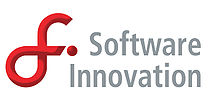NCPC 20102nd October 11:00-16:00 CEST
The contest was held 2nd October 11:00-16:00 CEST. The winner was Lag Bernhardsson from KTH in Sweden, with 8 problems solved out of 11.
Join NCPC on Facebook and spread the word to your friends and colleagues! NCPC will use the Kattis automatic judging system developed by KTH. Every team will get a new account on the day of the competition. If you have a personal Kattis account then you can use it to practice on the available problems. The winners will be Nordic Champions in programming for teams, and the best student teams will go to NWERC, the regional finals in the ICPC contest. This contest also encompasses national and local championships, and is held in a distributed manner at various sites throughout the Nordic countries. Organisers should review the NCPC-Site-HOWTO.
Below is a list of sites that will hopefully join NCPC in 2010. (+ marks verified sites.)
In short: Teams of up to three persons try to solve as many problems as possible from a set, without external help. The rules for this contest is given by the ICPC regional contest rules, with the following clarifications and additions: Who may competeThe teams competing consist of up to three persons. The competition is open to everybody, as long as they belong to some Nordic entity in some sense (all belong a given university or company, or all just come from the same country). ICPC eligibilityOnly ICPC eligible student teams compete in the ICPC division. These may qualify for the regional finals (NWERC), and further to the ICPC World Finals. Basically, any student who started his/her university/college studies in 2006 or later is eligible to compete. For exceptions such as retaken years, military service and so on, please refer to the ICPC rules. Persons who have competed in five regional finals already, or two world finals, may not compete in the ICPC division. What you may bring to the contest floor
What you may use during the contest
Behaviour during the contestBefore the contest begins, you are allowed to log in on your assigned computer, and log in on the submission system. You may do nothing else with the computer (such as starting to write code). You may not touch the problem set before the contest has started. Contestants are only allowed to communicate with members of their own team, and the organisers of the contest. You may not surf the web (except for allowed content), read e-mail, chat on MSN, or similar things. The only network traffic you may generate is from submitting problem solutions, and access to content specified by the local organisers. The contestThe problem set consists of a number of problems (usually 8-12). The problem set will be in English, and given to the participating teams when the contest begins. For each of these problems, you are to write a program in C, C++ or Java that reads from standard input (stdin) and writes to standard output (stdout), unless otherwise stated. After you have written a solution, you may submit it using the specified submission system. The team that solves the most problems correctly wins. If two teams solve the same number of problems, the one with the lowest total time wins. If two top teams end up with the same number of problems solved and the same total time, then the team with the lowest time on a single problem is ranked higher. If two teams solve the same number of problems, with the same total time, and the same time on all problems, it is a draw. The time for a given problem is the time from the beginning of the contest to the time when the first correct solution was submitted, plus 20 minutes for each incorrect submission of that problem. The total time is the sum of the times for all solved problems, meaning you will not get extra time for a problem you never submit a correct solution to. If you feel that problem definition is ambiguous, you may submit a clarification request via the submission system. If the judges think there is no ambiguity, you will get a short answer stating this. Otherwise, the judges will write a clarification, that will be sent to all teams at all sites in the contest. |










